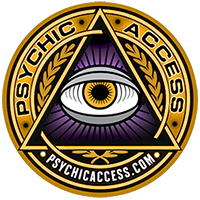How To Effectively Silence Your Inner Critic




I recently did a reading for a distraught woman who said she almost felt like she had a “demon” inside her.
“It literally mocks me,” she said. “It is this little voice in my head that is negative and critical about everything I say and do.”
Spirit then reassured her in the reading that she has only a glorious, powerful, bright soul inside of her, just like everyone else. What she was experiencing was simply her inner critic — that part of herself that is always negative about life, which she developed at a very young age due to a difficult childhood.
Spirit also advised that it was time for her to work on transforming her inner critic, and after much reflection, she agreed to work toward that goal. It took several months of furher guidance and hard work, but today she is a much happier person for having taken the necessary steps to “silence the little voice within” that was preventing her from living life to her fullest potential.
We all have an inner critic, some more than others. The inner critic is that mental voice or internal narrative that criticizes, doubts, belittles, or demeans us, often leading to feelings of inadequacy, failure, or self-doubt. It’s an inner dialogue that is harsh and judgmental, often focusing on our shortcomings, mistakes, and flaws.
Originally, the inner critic can serve as a protective mechanism, helping us avoid mistakes or socially unacceptable behavior by anticipating potential problems or criticism from others. However, when it becomes overly critical or dominant on a consistent basis in our lives, it leads to negative outcomes, including anxiety, depression, low self-esteem, and hindered personal growth. The inner critic can have a very negative impact on our behavior, choices, and emotional well-being, interfering with our ability to pursue goals, maintain healthy relationships, or simply enjoy life.
Origins Of The Inner Critic
Understanding the origins and recognizing the presence of the inner critic are the first steps toward silencing it or transforming it into a more positive, supportive inner voice.
The inner critic develops from a variety of sources and causes throughout our lives, including:
Childhood Experiences: Childhood experiences play a significant role in shaping the inner critic. Critical, demanding, or unsupportive caregivers can lead to the development of a harsh inner critic. As children, we internalize the voices of the adults around us, and these voices can become part of our self-talk.
Life Trauma: Experiencing traumatic events of failure, rejection, or criticism can strengthen the inner critic. These experiences can lead to the internalization of negative feedback, making the individual more susceptible to self-criticism.
Psychological Factors: Personality traits such as perfectionism or high neuroticism can make someone more susceptible to developing a strong inner critic. These traits can cause individuals to set unrealistically high standards for themselves or to be overly sensitive to criticism.
Social Expectations: Society and culture set norms and standards for behavior, success, appearance, and more. Constant exposure to these standards, especially today through social media, can feed the inner critic and make us feel like we are never good enough.
Educational and Work Environments: Schools and workplaces tend to emphasize achievement, competition, and comparison with peers. These environments can contribute to the development of an inner critic, especially if they involve high pressure, stress, or criticism for failure.
Karmic Influences: In the context of karma, the law of cause and effect whereby one’s past actions influence current life circumstances and inner dynamics, the inner critic can be a manifestation of unresolved karmic issues, guiding or challenging us to resolve past mistakes and evolve spiritually.
Soul Lessons: The concept that the soul travels through different lifetimes to learn and grow is central to many spiritual beliefs. Challenges, including those posed by the inner critic, are opportunities for the soul to learn certain lessons, develop virtues, or overcome limitations.
The Shadow: Carl Jung’s concept of the shadow — parts of ourselves that we deny or ignore — has been incorporated into many spiritual practices. The inner critic is sometimes the voice within that points to our shadow aspects, signaling areas of our lives that need healing, integration, or acceptance for spiritual growth.
Spiritual Awakening: For some, intense inner criticism can signal the beginning of a spiritual awakening, a period marked by significant personal and spiritual turmoil and transformation. The heightened activity of the inner critic can force individuals to confront their deepest fears and insecurities, leading to profound insight and growth.
Ego Illusion: In many esoteric teachings, the ego is seen as a source of illusion, creating a false sense of separation from the divine or true self. The inner critic, as a function of the ego, is often a manifestation of this illusion, drawing individuals away from their spiritual essence and toward material or worldly concerns.
The Esoteric Concept Of The Ego
In today’s science-dominated world, the concept of the inner critic is most often discussed in psychological terms, focusing on its development through life experiences and its impact on mental health and behavior. However, when we explore the inner critic in the context of esoteric teachings and the ego, we enter a realm where psychology intersects with spirituality and philosophy. Here, the inner critic is seen not only as a byproduct of individual experience, but also as a manifestation of the ego — a deeper, more fundamental aspect of the self that esoteric and spiritual traditions seek to understand and transcend.
Incidentally, the parallel use of the term “ego” in spirituality and psychology can be attributed to the fact that the term “ego” itself comes from the Latin word for “I,” making it a natural choice for discussions of the self or self-identity in various traditions. Carl Jung’s analytical psychology, which bridges the psychological and the spiritual, introduces the concept of the ego as the center of consciousness. Jung emphasized the importance of integrating the ego with the unconscious aspects of the self (the shadow, anima/animus) for psychological and spiritual wholeness.
The concept of the “ego,” though it may vary in name and nuance, is found in a wide range of esoteric and spiritual traditions. These traditions explore the role of the ego, its impact on spiritual development, and the journey toward transcending its limitations. Several spiritual traditions understand and incorporate the concept of the ego:
HINDUISM
In Hindu philosophy, particularly in Advaita Vedanta, the ego is often referred to as “Ahamkara,” meaning “I-maker” or the principle of individuation. It’s seen as the aspect of the mind that identifies with the body and personal identity, creating the illusion of separateness (maya). The spiritual journey involves the dissolution of Ahamkara in order to realize Atman (soul) or Brahman (universal consciousness), the true self that is beyond the ego.
BUDDHISM
Buddhism teaches the concept of “anatta” or “anatman,” which translates as “no-self” or “non-self. This teaching refutes the idea of a permanent, unchanging self (or ego) and suggests that understanding the illusion of the ego is essential to achieving enlightenment. The practice of mindfulness and meditation in Buddhism is often aimed at observing and eventually seeing through the delusions of the ego.
CHRISTIAN MYSTICISM
While not always explicitly referred to as “ego,” mystical branches of Christianity, such as those followed by mystics like Meister Eckhart and St. John of the Cross, speak of dying to oneself or the need to transcend the individual self in order to experience union with God. This process involves letting go of personal desires, attachments, and the egoic sense of self in order to attain a deeper spiritual connection and understanding.
SUFISM
In Sufism, the mystical branch of Islam, the concept of “nafs” is somewhat analogous to the ego. Sufism speaks of the purification of the nafs from its lower desires to its higher, divine nature. The journey involves moving from the lower self, dominated by the ego and base desires, to a state of selflessness and realization of oneness with the Divine.
KABBALAH
Kabbalah, a mystical tradition within Judaism, discusses the ego in the context of the individual’s journey to achieve “devekut,” or union with God. It recognizes the ego as an obstacle to spiritual enlightenment and emphasizes the necessity of diminishing the ego in order to experience divine presence and unity.
TAOISM
Taoism, with its emphasis on harmony with the “Tao” or “The Way,” views the ego as a source of disharmony and separation from the natural order of the universe. The Tao Te Ching, a foundational text for Taoism, encourages simplicity, humility, and the renunciation of ego-based desires in order to align more closely with the Tao.
THEOSOPHY
Within Theosophy, the concept of the ego is multi-layered and complex, blending elements from Hinduism, Buddhism, and other esoteric teachings. Theosophy distinguishes between the lower and higher aspects of the ego, reflecting its nuanced understanding of human consciousness:
The Lower Ego is associated with the personal self, which includes the individual’s personality, desires, and intellect. It’s similar to the everyday sense of “I,” which is concerned with personal identity, survival, and material pursuits. This aspect of the ego is considered temporary and illusory, tied to the physical plane and the cycle of birth and death.
The Higher Ego, on the other hand, is seen as the true self or spiritual essence of the individual. In theosophical terminology, it is associated with the Atma-Buddhi, which corresponds to the universal, divine spark within every human being. The Higher Ego transcends the physical and is eternal, moving through various incarnations to evolve and reach higher levels of consciousness.
In Theosophy, the ego plays a crucial role in the spiritual evolution of humanity. The journey involves the gradual integration and alignment of the lower ego with the higher ego, leading to spiritual awakening and enlightenment. This process requires overcoming the limitations imposed by the lower ego, including material attachments and selfish desires, to allow the higher spiritual nature to guide one’s life.
Theosophical practices aimed at transcending the ego include meditation, study, service to humanity, and the cultivation of virtues such as compassion, altruism, and wisdom. By engaging in these practices, individuals can purify their lower nature, strengthen their connection to the higher ego, and contribute to the collective spiritual evolution of humanity.
Theosophy views the ego not only as an obstacle to spiritual growth, but also as a necessary agent in the soul’s evolutionary journey. The ultimate goal is to achieve a state of consciousness in which the higher ego fully manifests its divine qualities, leading to a realization of one’s oneness with all existence.
In all of the above traditions, the ego is seen as something to be understood, transcended, or integrated in order to achieve spiritual growth, enlightenment, or union with the divine. The specific practices and beliefs about how to achieve this vary, but the underlying recognition of the role of the ego in spiritual development is a common thread.
The Inner Critic And The Ego
In esotericism and spirituality, the ego is seen as the sense of individual identity that separates us from the rest of existence. It’s the human part of the self, as opposed to the soul self, which is tied to personal desires, fears, and social conditioning. The ego is what gives rise to the dualistic perception of “self” versus “other,” and it’s associated with the mind’s chatter, judgments, and constant need for validation and security.
From this esoteric perspective of the ego, the inner critic can be understood as follows:
Voice of Separation: The inner critic, from an esoteric perspective, is one of the inner voices of the ego that reinforces a sense of separation and individuality. It does so by continuously evaluating and often devaluing the self in comparison to others or to an idealized version of the self.
Maintenance of the Ego: The inner critic plays a role in maintaining the ego’s boundaries by defining what is acceptable or unacceptable within the self. This can be based on societal norms, personal ambitions, or deep-seated fears, all of which are influenced by the ego’s desire to be seen in a certain light.
Barrier to Self-Realization: In many spiritual traditions, the ultimate goal is the realization of the true self beyond the ego — a state of consciousness where the sense of separation dissolves, and one experiences unity with all existence. The inner critic, by keeping us focused on our shortcomings and reinforcing the sense of a separate self, can act as a barrier to this self-realization.
Catalyst for Soul Growth: Conversely, the inner critic can also serve as a catalyst for spiritual or soul growth. By bringing awareness to the mechanisms of the ego, including the inner critic, we can begin the process of disidentifying with these patterns. This awareness is the first step in transcending the ego and moving closer to spiritual awakening.
Thus, in the context of esoteric teachings, the inner critic is intimately linked to the ego. Its transformation is not only about improving mental health, but is also part of the spiritual journey toward understanding the true nature of the Self beyond the limitations of the ego.
Transforming The Inner Critic
But how do we transform or “silence” the inner critic? Transforming or silencing the inner critic from a spiritual perspective involves a blend of mindfulness, self-awareness, self-compassion, connection to a higher reality or consciousness, and cognitive strategies to reframe your internal dialogue or “self-talk.
The goal is to recognize that the inner critic is not the true self, but rather a construct of the ego. Through persistent practice, we can learn to detach from the critic’s judgments and find a space of inner stillness and peace that lies beyond the ego.
By recognizing the spiritual dimensions of the inner critic, we can approach it with curiosity and openness, seeking the deeper lessons and growth opportunities it offers. This shift in perspective can transform the inner critic from a source of pain and limitation into a guide to greater self-awareness, healing, and spiritual fulfillment. The goal is not simply to silence the critic, but to understand its messages and what they reveal about one’s spiritual path and areas of growth.
Here’s how to approach this process:
CULTIVATING SELF-AWARENESS
The first step is to acknowledge the presence of your inner critic. Through awareness and intentional strategies, we can learn to challenge and change the narratives of our inner critic, fostering a kinder and more compassionate internal dialogue.
Notice when it speaks and what it usually says. This awareness is crucial because you can’t change what you don’t acknowledge. Pay close attention to your preferred thought processes. Often, negative self-talk and toxic thoughts stem from unwarranted insecurities. Actively notice your daily thoughts.
Once you’re aware of the critical voice within, challenge its statements. Ask yourself if these thoughts are really accurate. The inner critic often exaggerates. Look for evidence that contradicts what the critic says. Try to look at your thoughts as if they were being said about you by a friend. What would you say to them? This can help you find a kinder, more compassionate way to talk to yourself. Ask yourself what you can do to correct undeserved or ridiculous self-criticism and negative thinking. Then you can take appropriate action to shift your thought process toward a more positive, self-accepting mindset.
MEDITATION AND MINDFULNESS
Mindfulness and meditation are powerful practices for silencing the inner critic. It works by changing the relationship we have with our thoughts, including the judgments and criticisms that the inner critic represents.
Mindfulness cultivates a state of awareness in which you can observe your thoughts without automatically identifying with them. This observational stance allows you to recognize the inner critic as just another thought pattern, not an absolute truth about who you are. By observing your thoughts, you begin to see the impermanent nature of the inner critic’s messages. You learn not to respond to them automatically, which reduces their influence and power over your feelings and actions.
Both mindfulness and meditation also encourage a non-judgmental attitude toward your thoughts and feelings. You learn to accept them as they are, without trying to suppress or change them immediately. This acceptance helps to reduce the struggle with the inner critic and the negative emotional spiral that often follows its criticism. It also fosters a kinder, more compassionate relationship with yourself.
Meditation, especially practices such as breath mindfulness or body scanning, helps distance you from your thoughts. This process, known as decentering, allows you to see that thoughts are temporary and not an inherent part of your identity. Decentering from the inner critic helps to reduce its influence. You begin to see that the critical voice is not “you,” but rather a conditioned response. This realization can greatly reduce the emotional weight of its messages.
Certain meditation practices, such as loving kindness (metta) meditation, focus specifically on cultivating feelings of compassion, love, and goodwill toward oneself and others. These practices can soften the harshness of the inner critic and replace it with a more supportive and encouraging inner voice. Over time, the positive qualities cultivated through meditation can become more dominant in your self-talk.
With continued practice, mindfulness and meditation can help you develop a new, more compassionate narrative about yourself. This narrative is based on understanding, kindness, and acceptance. As this new narrative becomes stronger, it can overshadow the critical voice, transforming the way you relate to yourself and ultimately silencing the inner critic.
In essence, mindfulness and meditation transform the inner critic by changing the way we engage with our thoughts and emotions. They provide tools to observe, understand, and ultimately transcend the critical voice, fostering a healthier and more compassionate relationship with self.
POSITIVE AFFIRMATIONS
Affirmations are another powerful tool for transforming the inner critic by actively reshaping the narrative we tell ourselves. Unlike the often automatic and unconscious process of inner criticism, affirmations are conscious, positive statements designed to challenge negative thoughts and beliefs and reinforce one’s self-worth, abilities, and positive qualities.
To effectively silence your inner critic, you must commit to speaking more positively to yourself. You must commit to using positive, empowering words. Creating personal affirmations and finding positive quotes are great ways to do this. This helps to silence the inner critic and increases your self-confidence.
Affirmations directly challenge the negative beliefs and statements of the inner critic by offering positive alternatives. For example, to the inner critic’s message, “I am not good enough,” an affirmation might be, “I am capable and worthy of love and respect.
Regularly repeating affirmations helps to weaken the hold of negative beliefs by offering a different, positive perspective. Neuroplasticity is the brain’s ability to form new neural connections throughout life. Positive affirmations rewire the brain by strengthening pathways associated with positive thinking and self-view.
This neural rewiring makes positive thoughts and beliefs more automatic, reducing the frequency and intensity of critical inner dialogue. Over time, the brain begins to accept these positive statements as truth, reducing the space for the inner critic to operate.
To ensure that your affirmation practice is effective, it is important to tailor affirmations to your specific needs and areas where the inner critic is most vocal. Repeat your chosen affirmations regularly, ideally daily, to reinforce their positive messages, and infuse them with genuine emotion and belief to increase their impact.
EMPOWERMENT JOURNALING
Journaling is a powerful tool for self-reflection and personal growth, offering a constructive way to transform or silence the inner critic. This practice allows the individual to externalize thoughts and feelings, providing clarity and a new perspective on the inner dialogue.
As I explained earlier, the first step in trying to silence the inner critic is to acknowledge it. Don’t try to avoid or ignore these negative thoughts. Instead, shine the light of truth on them! Journaling helps you gain a clearer perspective while effectively dealing with unwanted negative emotions. By writing down your thoughts and feelings in a journal, you learn to deal with negative emotions more objectively.
Journaling encourages the process of cognitive reframing, in which you actively reinterpret and reassess negative thoughts or experiences in a more positive or neutral light.By reframing the messages of the inner critic, you can transform them into opportunities for learning and growth, rather than seeing them as absolute truths about your worth or abilities.
Often, our inner critic just seems to be telling us a hard truth or offering constructive suggestions for improvement. There are many benefits to writing down these thoughts in a journal. This process helps you challenge false negative thoughts and limiting beliefs and ultimately silence the inner critic.
It is said that the inner critic is also a kind of survival mechanism that makes us question our actions before we take them. Although this inner voice may seem loud and domineering, it is actually tiny compared to your true creative and spiritual potential. Writing in your journal regularly, preferably daily, can help you remember the bright, creative reality of who you really are and find the courage to express it. This helps to silence the inner critic.
Regular journaling creates a record of personal growth and change over time. You can reflect on past entries to see how your relationship with your inner critic has evolved. Witnessing your own progress can be incredibly validating and motivating. It reinforces the understanding that the inner critic can be managed and that you’re capable of positive change.
To get the most out of journaling, try to write regularly. Even a few minutes a day can make a significant difference. Be as honest as you can in your writing. Remember, this is for you and not for the eyes of others. Use prompts that encourage reflection on the inner critic’s messages, such as “What triggered my inner critic today?” or “How can I reframe this criticism in a more positive light?”
While it’s important to acknowledge the inner critic, make space to journal about positive experiences, strengths, and gratitude. This balance can help change the overall tone of your internal dialogue.
CHEERLEADERS AND NAYSAYERS
I remember a bank manager telling me in 1984 that I would probably go bankrupt at a young age because he could not see me paying my debts. I also remember relatives and friends telling me that I would never be able to be successful in business because I “didn’t have what it takes”. Well, with all due respect, they were all very, very wrong.
It is always wise to consider wise, well-intentioned advice from others, but never let other people’s negative opinions and narrow-minded ideas get in the way of your personal and professional growth. They only feed your inner critic with more negativity to bombard you with.
It does not matter what other people think or believe, or what your inner critic would have you believe. When you know in your heart that you can accomplish what you set out to do, you will be successful in your endeavors.
Replace that nasty inner critic with the inspiring, growth-oriented voice of your inner cheerleader! This growth-oriented inner voice tells you to step up, contribute to life and make a difference in the world. It inspires you to shine your light of love. Ultimately, this voice wants to help you become the best version of yourself; a more confident, compassionate person who can express your best self at all times.
Unlike the growth-oriented inner cheerleader, your inner critic is more like a parented child who grew up too fast to protect himself from adult reality. It has allowed you to develop maladaptive coping mechanisms. When you confront your inner critic, show it empathy and compassion. Ask what it is trying to tell you, but don’t be afraid to question what you hear! Also, look for evidence of what you are being told. Can you prove that your inner critic is right? More often than not, the answer is likely to be a resounding no.
Silencing the inner critic also requires that we surround ourselves with people and social environments that foster supportive, encouraging, and uplifting relationships. Having a few cheerleaders in your life who have your back can have a significant impact on your mental and emotional well-being, reinforcing a positive self-image and diminishing the power of the inner critic.
Make sure you identify the naysayers and haters. Recognize how certain people affect your feelings about yourself and your life. Naysayers and haters often feed your inner critic by reinforcing doubts and insecurities. Take an inventory of your relationships to see which ones are sources of negativity. Consider how much time and emotional energy you spend dealing with criticism or negativity from these people.
Once you’ve identified the sources of negativity, actively limit your exposure to them. This may mean spending less time with them, avoiding certain topics of conversation, or even ending relationships if necessary. If possible, communicate your boundaries clearly. Let people know what kind of support you’re looking for and what kind of comments or behaviors you find unhelpful or hurtful.
Next, seek out positive relationships by identifying your cheerleaders. Look for people who are supportive, optimistic, and encouraging. These people don’t have to be uncritical yes-people; constructive feedback from a place of kindness can be incredibly valuable. If your current social circle lacks positive influences, take steps to meet new people. Join clubs, groups, or communities where you’re likely to find like-minded people.
Get involved in groups or communities, both online and offline, that share your interests or values. Being part of a community can provide a sense of belonging and mutual support. In these communities, actively contribute in a way that promotes positivity-both giving and receiving support. This reciprocal relationship reinforces a positive self-image and silences the inner critic.
Remember to practice gratitude and show appreciation for the support and positivity you receive. Gratitude not only strengthens relationships, but also keeps you focused on the positive aspects of your life. Also, be a cheerleader for others. Supporting friends and loved ones in their endeavors can create a positive feedback loop that increases the overall positivity in your life.
ADDITIONAL STRATEGIES
Stop comparing: Comparing yourself to others can fuel your inner critic. Remember that everyone’s journey is unique, and it’s unfair to compare your behind the scenes with someone else’s highlight reel. This habit causes you to focus on others when you should be focusing on yourself. The inner critic typically reflects only on your shortcomings and weaknesses. If you compare yourself to others, you will always find something lacking in yourself. It damages your self-confidence, prevents you from realizing your potential, and makes you doubt your own abilities.
Set realistic goals: Sometimes our inner critic gets loud when we set unattainable standards for ourselves. Set achievable goals and celebrate small victories to build confidence and silence the critic.
Seek feedback: If your inner critic often makes you doubt your abilities, seek feedback from trusted friends or mentors. Sometimes a different perspective can reassure you and quiet the critical voice.
Focus on learning and growing: Instead of beating yourself up over mistakes, look at them as learning opportunities. Adopting a growth mindset can help you see challenges as opportunities to grow, reducing the power of your inner critic.
Seek professional help: If your inner critic is significantly impacting your life, consider seeking the support of a mental health professional, energy healer, or psychic medium. Therapy, energy work, and psychic readings can provide strategies and solutions tailored to your unique needs and help you develop a healthier internal dialogue and inner peace.
Remember that silencing your inner critic is a process. Be patient and compassionate with yourself as you work to change these ingrained thought patterns.
|
Lucinda is a highly trained Intuitive and Empath, living in a beautiful village in North Yorkshire, England. She possesses the rare gift of understanding a client's personal pain and has been through many challenges, herself, which has only made her stronger! It is both her calling and her happiness to help those in need. And whenever she needs a little help herself, her Guides are always there to assist in her development and provide clear interpretations for her clients. Prediction has always been a great tool she could count on to accurately foretell events, but Lucinda also draws on her expertise with Dream Interpretation, Numerology, Angel Cards, Law of Attraction and Life Coaching to provide full and detailed solutions to any problem. A member of AMORC and Beyond Freedom Evolution, she provides inspiration, education and personal support for spiritual development. |
SHARE THIS PAGE
New customer? Your first reading with us is FREE with any available psychic of your choice.
Yes we are that confident you will love us!
SIGN UP NOW!
No credit card required.
Discover your fate and fortune with your FREE daily horoscope from our expert astrologer, Susyn. Find out what the planets in your zodiac sign have in store for you today!
Get daily doses of psychic wisdom and spiritual inspiration from our gifted team of psychic advisors. We post a new blog every day. Dive into our official blog at PsychicBloggers.com!





